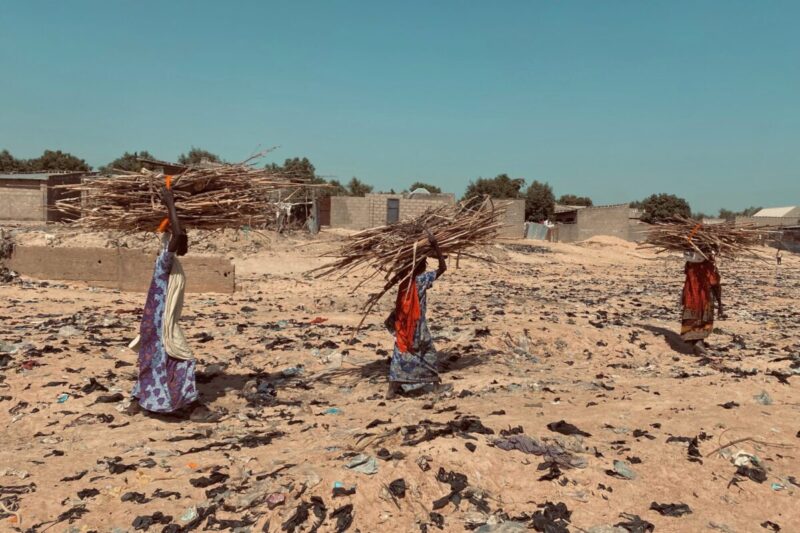Collecting wood is how we survive – internally displaced persons say they do not have a choice; if they stop going into the bushes to fetch firewood, they will die of starvation.
Five more wood collectors from the Muna Kumburi internally displaced persons’ camp in Maiduguri have been kidnapped for ransom by insurgents.
This brings the total number of displaced people abducted in Borno State in the past month to at least 30.
The five people were abducted on Monday, July 1, while gathering firewood at Baram Karwa village.
Cutting, collecting and selling wood is a primary source of livelihood for displaced people in Nigeria’s northeast, which has been ravaged by armed conflict for well over a decade.
Mustapha Bukar, a displaced person who lives in Muna Kumburi camp, told RNI that the insurgents, believed to be members of the Jamā’at Ahl as-Sunnah lid-Da’way Wa’l-Jihād (JAS), more commonly referred to as Boko Haram, abducted the wood gatherers and held them for one or two days, depending on when they received the ransoms.
“The insurgents demanded money from all five families as well as specific items from each family. Some of the items were food, mobile phones and clean water.
All the families were told to pay the ransoms, or their loved ones would face death.
“One family was asked to pay ₦20,000 and provide food items.
“The man’s wife is on her way to deliver the money and food to secure his release as I am speaking to you now [on Wednesday, July 3]. She managed to raise money from donations. She also sold some belongings.
“Two of the abductees were released on Tuesday after paying the ransom. They are too terrified to speak now. The insurgents wrote their phone number on the palm of the two released abductees, instructing them to give the number to the families of the remaining captives to secure their release.
“This has been happening for a while now. Two weeks ago, they abducted truck drivers who went into the bush to fetch firewood. They demanded almost a million naira as ransom before releasing them.”
Ya’ana Modu, a neighbour of one of the abductees, said: “We were frightened after the incident but that will not stop us from going to fetch firewood. We do not have a choice. It is our only means of survival. If we do not go to fetch wood, hunger will kill us.”
Local security operatives told RNI that they were trying to safeguard wood collectors and farmers, but they were not always successful.
Gaji Mustapha, a civilian join task force (CJTF) member who lives in the Muna Kumburi camp, told RNI that the number of attacks and abductions had escalated in recent weeks.
“The Borno State government needs to intervene. More security personnel need to be deployed to protect farmers on their lands and to accompany people going to fetch wood.
“Farmlands are mostly in isolated areas where insurgents can attack without anyone knowing. And the people who collect firewood must go into the bushes and forests where insurgents have hideouts.
“We need to take serious measures to address the abduction issue, especially when attacks occur. When people are abducted, we need to be able to get to the scene quickly to track down the insurgents and rescue the abductees.
“When the insurgents realise that we are fighting back, they will gradually back off. By yielding to their demands, we are only motivating them to do more harm.”
Mustapha said there had been a decrease in the number of abductions until the start of the rainy season.
“As farmers returned to their lands to prepare for this year’s seasonal agricultural activities, so the number of abductions began increasing. More than 30 people have been abducted since the rainy season began. And the number could be higher than that.
“Just this morning [Wednesday, July 3] we got a report that armed men, thought to be insurgents, surrounded more than 20 farmers in Gajiganna. They were forced to give up their belongings and were chased away from their farmlands. Luckily no one was killed or wounded and this time no one was abducted.”
Gajiganna is in the Magumeri Local Government Area of Borno State, about 50km from Maiduguri, the capital.
“We need better equipment and resources to combat the insurgents effectively. We require patrol vans and sufficient fuel to operate. Sometimes, we can’t respond promptly to attacks simply because we do not have enough fuel,” Mustapha said.
AYSHA MUSTAPHA KOLOMI








